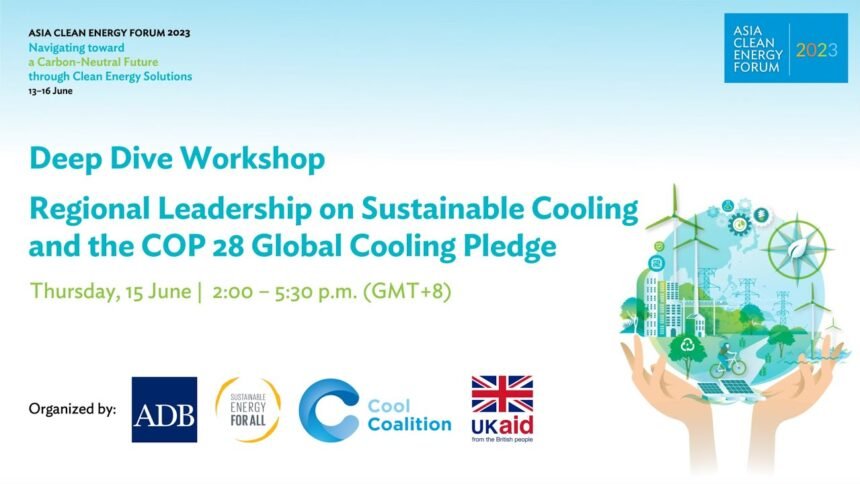COP28 President-designate, Sultan Al Jaber, has taken the stage at the 14th Clean Energy Ministerial, alongside the G20 Energy Transitions Ministerial Meeting, to advocate for a critical global cooling pledge. Stressing the urgency of transitioning to energy-efficient and climate-friendly cooling solutions, Al Jaber called on all nations to join forces in the fight against escalating climate change.
With the planet’s temperature on the rise and extreme weather events becoming more frequent and intense, the need for innovative and sustainable cooling technologies has never been more apparent. The global cooling pledge, announced earlier in the year, seeks to rally countries together in a united front against the escalating climate crisis. This initiative aims to accelerate the development and adoption of cooling systems that do not exacerbate global warming and place an enormous burden on energy consumption.
In his address, Al Jaber expressed gratitude to Denmark’s Minister, Dan Jørgensen, and Minister of State for Science and Technology, Jitendra Singh, for taking up the mantle of Cooling Champions. Their commitment to championing the cause of climate-friendly cooling serves as an inspiring example for other nations to follow suit. Al Jaber emphasized that individual actions matter, but collective action from countries across the globe is the key to securing a sustainable future for generations to come.
The impact of cooling systems on the environment cannot be underestimated. Traditional cooling methods often rely heavily on fossil fuels and refrigerants with high global warming potential. These practices not only contribute significantly to greenhouse gas emissions but also escalate the overall energy demand, putting additional strain on power grids and hindering progress towards a low-carbon future.
By endorsing the global cooling pledge, countries commit to implementing policies that encourage the adoption of energy-efficient and eco-friendly cooling technologies. These can range from improving building design to reduce heat absorption, developing greener refrigerants, and promoting the use of renewable energy sources to power cooling systems.
The benefits of such a pledge go beyond curbing climate change; they extend to improved public health, reduced electricity costs, and enhanced economic growth. Cooling systems that prioritize energy efficiency can substantially lower electricity consumption, easing the burden on power generation and distribution infrastructure. This, in turn, translates to cost savings for consumers and businesses alike, boosting economic productivity.
Moreover, energy-efficient cooling contributes to mitigating the urban heat island effect, which sees cities experiencing significantly higher temperatures than their rural surroundings. By implementing smarter cooling solutions, cities can create more comfortable living environments and minimize the strain on public health during heatwaves.
As the world faces the consequences of climate change, there is an increasing need for international cooperation and joint commitments. COP28 President-designate Al Jaber has called on all countries to unite under the banner of the global cooling pledge, emphasizing that no nation can face this challenge alone. Collaborative efforts are essential to drive research, innovation, and implementation of sustainable cooling technologies that can benefit both industrialized and developing nations alike.
The urgency of the climate crisis demands immediate action, and Al Jaber’s call comes at a crucial juncture when the world must make bold decisions to secure a sustainable and climate-friendly future. By embracing the global cooling pledge, countries can take a significant step forward in the battle against climate change and demonstrate their commitment to preserving the planet for future generations.
In the final hours of the 14th Clean Energy Ministerial and G20 Energy Transitions Ministerial Meeting, the world waits with bated breath to see how many countries will heed the call and become champions of climate-friendly cooling. Together, they can forge a path towards a more sustainable future and ensure that cooling systems no longer contribute to the global warming crisis but instead become part of the solution.









